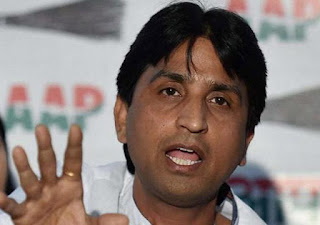Nida Fazli Biography
Muqtida Hasan Nida Fazli, referred to as Nida Fazli (12 October 1938 – eight February 2016), was a distinguished Indian Hindi and Urdu author, lyricist, and dialogue author. He was awarded the Padma Shri in 2013 by the govt of India for his contribution to literature.
Born in the urban center, India into a Kashmiri family, Nida Fazli grew up in Gwalior, wherever he attended college and later studied English literature. His father was additionally associate degree Urdu author. throughout the partitioning of India, his folks migrated to the Islamic Republic of Pakistan, however, Fazli set to remain in India.
While still young, Fazli was passing by a Hindu temple wherever a bhajan singer was singing a composition of Surdas concerning Radha sharing her sorrow together with her maids at being separated from her beloved avatar. The poetic fantastic thing about the Pad, with reference to the shut rapport and bonding between kinsmen, galvanized Nida to start writing poems.
During that amount, he felt that there have been limitations in Urdu poetry. He absorbed the essence of Mir and Ghalib to specific what he meant. He was fascinated by the lyrical mood of Meera and Kabir and widened his data of poetry by learning T. S. Eliot, Gogol and dramatist.
He moved to city in search of employment in 1964. within the youth of his career, he wrote in Dharmayug and Blitz .His poetic vogue attracted the notice of filmmakers and writers of Hindi and Urdu literature. He was typically invited to Mushairas, the distinguished recitation sessions of one's own poetry. He became proverbial among readers and ghazal singers for his elegant presentation and exclusive use of conversational language for ghazals, dohaas and nazms, whereas avoiding ornate Persian representational process and compound words to change his poetry. He wrote the renowned couplet: 'Duniya jise kehte hain jaadu kaa Khilona hai Mil jaaye to mitti hai kho jaaye to sona hai'. a number of his renowned film songs embrace Aa bhi jaa (Sur), Tu is Tarah se meri Zindagi Mein (Aap To Aise Na The) and Hosh waalon KO Khabar Kya (Sarfarosh). He wrote essays important of up to date poets of the sixties in his book Mulaqatein that incensed poets as well as Sahir Ludhianvi, Ali Sardar Jafri and Kaifi Azmi. As a result, he was boycotted in some poetic sessions. His career improved once Kamal Amrohi, a producer, approached him. the first composer Gregorian calendar month Nisar Akhtar engaged on the film Razia grand Turk (1983) had died before finishing the project. Nida wrote the ultimate 2 songs and attracted alternative Hindi filmmakers.
His celebrated lyrics were additionally employed in Aap to raise Na the, Is Raat Ki Subah Nahin (1996) and Gudiya. He wrote the title song of TV serials like Sailaab, nim tree Ka Ped, Jaane Kya Baat Hui, and Jyoti. The composition "Koi Akelaa Kahaan" is another common composition sung by Kavita Krishnamurthy. His ghazals and alternative compositions square measure was sung by notable artists of the day. He teamed up with Jagjit Singh in 1994 to bring associate degree album named Insight, that got the appreciation for its emotional poetry and music. Shortly before his death, he wrote columns for BBC Hindi website on numerous up to date problems and literature. Mirza Ghalib's works were typically mentioned by him.
Nida Fazli may be an author of assorted moods and to him, the inventive sentiment and inner urge square measure the sources of poetry. He thinks that the sensation of an author {is similar|is associate degreealogous|is comparable} to an artist: sort of a painter or a musician. In distinction he found lyric writing a mechanical job as he had to fulfill the strain of the script and also the director. Later he accepted the sensible necessity of cash that comes from lyric writing and helps one to meditate on inventive work.
He revealed his 1st assortment of Urdu poetry in 1969. Childhood representational process persistently reflects in his poetry as components of yearning. Primary themes that run through his poetry square measure contradictions in life, the rummage around for the purpose, nuances of human relationships, variations between following and preaching, and also the hesitant for that that is lost.
Fazli died of a coronary failure on eight February 2016





